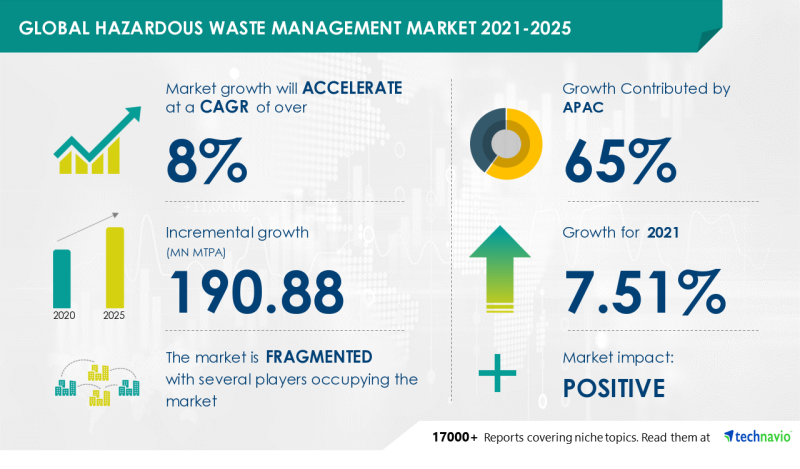Limit Pollution and Stay Healthy
Learning about your dumpster rentals and waste management
Wilmington waste management
Posted on March 2, 2022 in Wellness

Wilmington Dumpster Rentals Center is a local waste management company from North Carolina. They have been growing steadily since their creation in 1999, offering dumpster rentals, recycling and junk disposal services to the local community. Here we have a look at some of their main competitors in the waste disposal niche in the USA.
No. 3 Republic Services Inc.
Republic Services (Florida) is another example of the speed of supply transformation. Founded only in 1995, this company pursues an active policy of acquisitions on the non-toxic waste market alone. It is experiencing rapid growth and has risen to third place with a turnover of $ 1.84bn.
Its IPO dates from July 1998. It has established itself in the strong growth states of the sunbelt and seeks to raise its rate of integration by supplementing its own collection contracts with landfills. In 1999, according to a practice that is becoming widespread, it exchanges assets with the two majors: Waste management (16 landfills, 11 transfer stations and more than 130 collection circuits) and Allied-BFI.
No. 4 Superior Services
In June 1999, the American subsidiary of Onyx (Vivendi) acquired the number 4 in the waste sector, Superior Services, for an amount of $1bn.
It is a Milwaukee company with 750,000 customers in the Midwestern states. It was incorporated in 1993 and was not floated on the stock market until March 1996. Since then, it has developed through external growth that can be described as reasonable compared to other competitors, as evidenced by the increase in its turnover.
With the acquisition that same year of the special waste and liquid waste activities of Waste Management, Onyx rose to fourth place among household waste companies with $500 million in activity.
Laidlaw – Safety Kleen
Laidlaw is another representative figure in the sector. Around 1990 it was considered the third firm in the sector after Waste Management and BFI; then, following setbacks, it refocused on the industrial and hazardous waste segment before once again encountering serious difficulties.
This firm of Burlington (Ontario) was created around 1959 by Mr. de Groote who developed it in school transport and then in waste. It was bought in 1988 by the large Canadian group Canadian Pacific (Montreal) diversified in transport, energy, forest products, real estate, hotels.
CP, transport and energy group is in 1997 another growing waste management company. The strong growth announced at the end of the 1980s in the waste sector did not occur. Laidlaw combines the problems through two subsidiaries: ADT (security) and Attwoods (waste).
The latter operates on the English market for 25% of its activity; its Deputy Chairman was then Sir Denis Thatcher (husband of the English Prime Minister). These companies face regulatory compliance issues.
Attwoods experienced several lawsuits in 1991 (Florida, Maryland, Montreal), the most important of which followed a Pentagon investigation concerning illicit invoicing by the South Carolina subsidiary. This lawsuit will reinforce certain accusations alleging links between the Mafia and Industrial Waste Services. The company’s reputation will suffer. In addition, the subsidiary specializing in metal recycling has to deal with a fall in prices which is causing significant losses.
Laidlaw experiences repeated setbacks and remains the problem subsidiary of the Canadian Pacific group. This led to the sale of Attwoods in 1994 (taken over by BFI), then to that of ADT in 1995 (sold to a Kansas electrician, Western Union). However, the group is not withdrawing from the waste market. It strengthened its position in hazardous waste by taking over landfills and incineration plants from the Union Pacific railroad company. The activity thus earns $800m/year.
In 1997, Laidlaw acquired Rollins Environmental Services, to form by combining the assets of its hazardous waste division a new entity: Laidlaw Environmental Services Inc, which operates in three segments: i) collection for industry and local communities, ii) treatment (heat treatment and special services) and disposal, iii) interventions in Europe.
A year later, still pursuing an external growth strategy, Laidlaw Environmental is fighting a $2bn battle pitting it against Philip Services for control of Safety Kleen. The confrontation will quickly end because the second protagonist, weakened by irregularities in his metal trading activity, will not be able to mount the $1.35bn loan that would allow him to win the offer.
 I try my best to only publish information that is 100% verified and scientifically proven.
I try my best to only publish information that is 100% verified and scientifically proven.